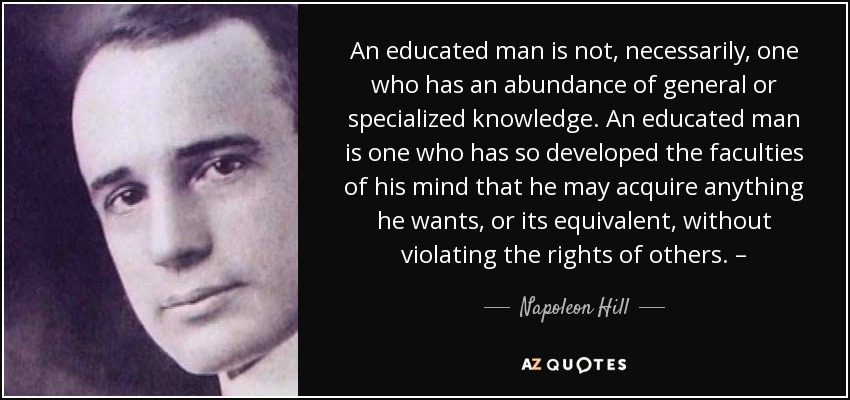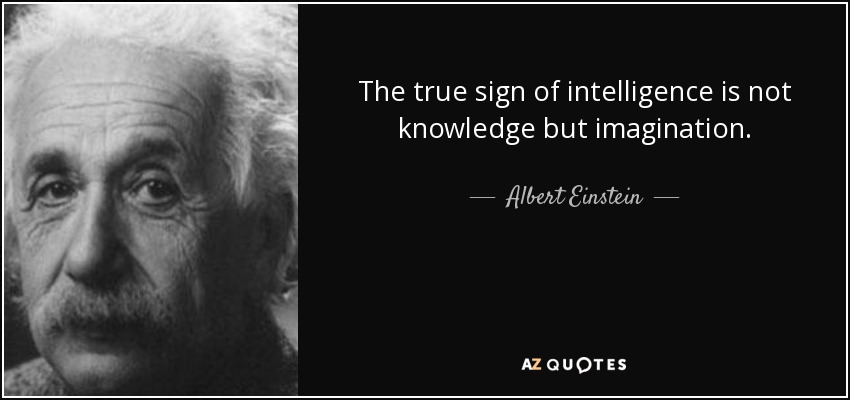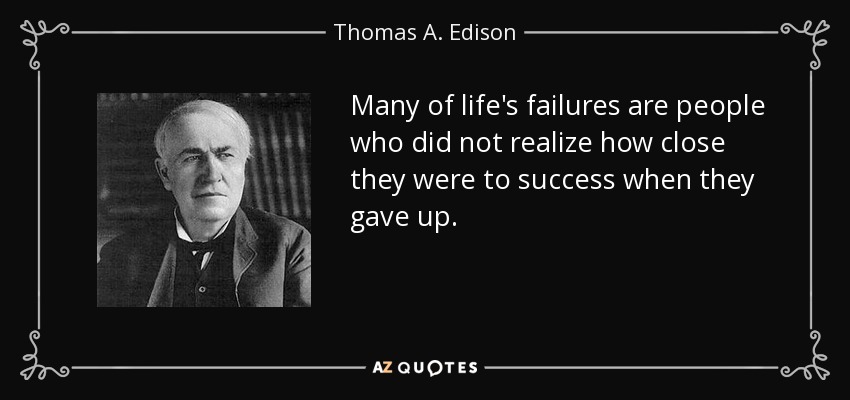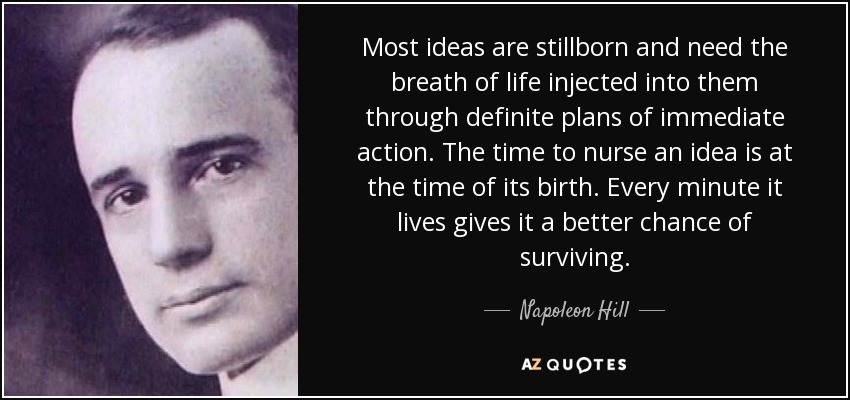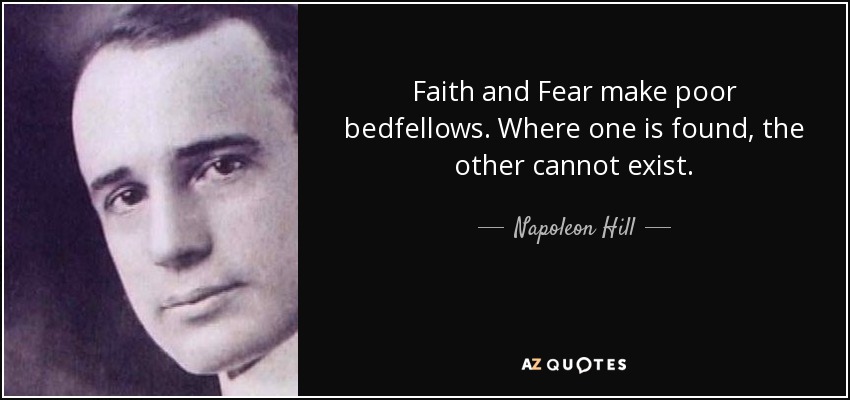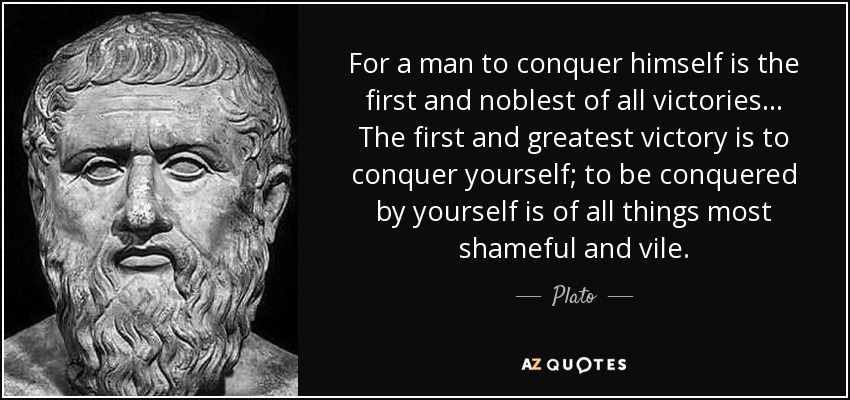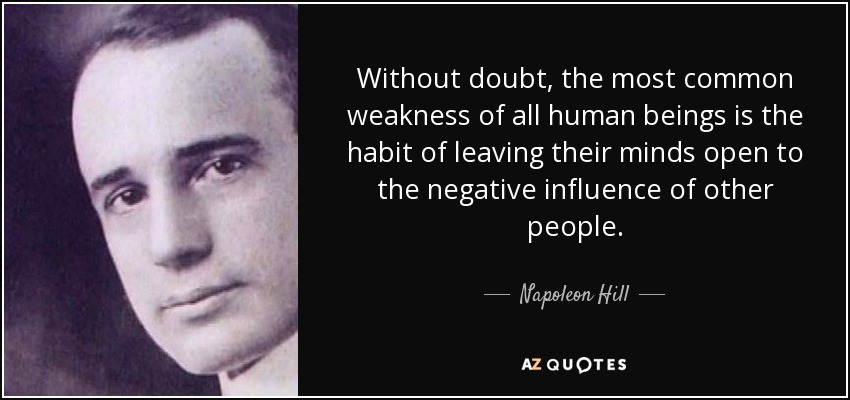Click here to return to Blog Post Intro
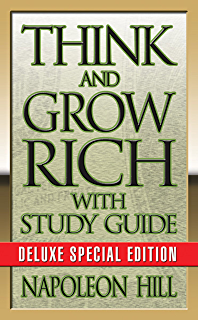
Napoleon Hill offers thirteen principles of money-making essential to every person who accumulates sufficient money to guarantee financial independence. He points out that “all achievement, all earned riches, have their beginning in an idea!”
The First Step Toward Riches
DESIRE: THE STARTING POINT OF ALL ACHIEVEMENT
When he was a young man, Edwin C. Barnes had a burning desire to become a partner of the greatest inventor on Earth, Thomas A. Edison.
Barnes literally thought himself into a partnership with the great Edison! He thought himself into a fortune. He had nothing to start with, except the capacity to know what he wanted and the determination to stand by that desire until he realized it!
Barnes succeeded because he chose a definite goal, placed all his energy, all his will power, all his effort, everything back of that goal. He did not become the partner of Edison the day he arrived. He was content to start in the most menial work, as long as it provided an opportunity to take even one step toward his cherished goal.
He did say, “I will start anywhere. I will do anything Edison tells me to do, but before I am through, I will be his associate.” He left himself no possible way of retreat. He had to win or perish! That is all there is to the Barnes story of success!
Hill notes that from years of experience, he’s found that when a man really desires a thing so deeply that he is willing to stake his entire future on a single turn of the wheel in order to get it, he is sure to win.
Opportunity often has a sly habit of slipping in by the back door, coming disguised in the form of misfortune, or temporary defeat. Perhaps this is why so many fail to recognize opportunity.
Every person who wins in any undertaking must be willing to burn his ships and cut all sources of retreat. Only by so doing can one be sure of maintaining that state of mind known as a burning desire to win, which is essential to success.
Desire for riches can be translated to financial riches through these six definite, practical steps:
- Fix in your mind the exact amount of money you desire. It is not sufficient merely to say “I want plenty of money.” Be definite as to the amount.
- Determine exactly what you intend to give in return for the money you desire.
- Establish a definite date when you intend to possess the money you desire.
- Create a definite plan for carrying out your desire, and begin at once, whether you are ready or not, to put this plan into action.
- Write out a clear, concise statement of the amount of money you intend to acquire, name the time limit for its acquisition, state what you intend to give in return for the money, and describe clearly the plan through which you intend to accumulate it.
- Read your written statement aloud, twice daily, once just before retiring at night, and once after arising in the morning. As you read, see and feel and believe yourself already in possession of the money.
These six steps were carefully scrutinized by the late Thomas A. Edison, who placed his stamp of approval upon them as being, not only the steps essential for the accumulation of money, but necessary for the attainment of any definite goal.
If you do not see great riches in your imagination, you will never see them in your bank balance.
As Edison discovered, every failure brings with it the seed of an equivalent success. The oak sleeps in the acorn. The bird waits in the egg, and in the highest vision of the soul, a waking angel stirs. Dreams are the seedlings of reality.
A burning desire to be, and to do is the starting point from which the dreamer must take off. There is a difference between wishing for a thing and being ready to receive it. No one is ready for a thing, until he believes he can acquire it. The state of mind must be belief, not mere hope or wish. Open-mindedness is essential for belief. Closed minds do not inspire faith, courage, and belief.
All achievement, no matter what may be its nature, or its purpose, must begin with an intense, burning desire for something definite.
The Second Step toward Riches
FAITH: VISUALIZATION OF, AND BELIEF IN ATTAINMENT OF DESIRE
Faith is a state of mind which may be induced, or created, by affirmation or repeated instructions to the subconscious mind, through the principle of auto-suggestion. Faith will develop, after you master the thirteen principles outlined here.
Stated in the words of a famous criminologist, “When men first come into contact with crime, they abhor it. If they remain in contact with crime for a time, they become accustomed to it, and endure it. If they remain in contact with it long enough, they finally embrace it, and become influenced by it.”
All thoughts which have been emotionalized (given feeling) and mixed with faith begin immediately to translate themselves into their physical equivalent or counterpart. A mind dominated by positive emotions, becomes a favorable abode for the state of mind known as faith. A mind so dominated may, at will, give the subconscious mind instructions, which it will accept and act upon immediately.
Faith is the only known antidote for failure!
Every man is what he is, because of the dominating thoughts which he permits to occupy his mind. Thoughts which are mixed with any of the feelings of emotions constitute a “magnetic” force which attracts similar or related thoughts.
Christianity is the greatest single force which influences the minds of men. The basis of Christianity is faith.
The law of auto-suggestion says, “If you think you are beaten, you are. If you think you dare not, you don’t. If you like to win, but you think you can’t, it is almost certain you won’t. If you think you’ll lose, you’re lost. For out of the world we find that success begins with a fellow’s will—it’s all in the state of mind. If you think you are outclassed, you are. You’ve got to think high to rise. You’ve got to be sure of yourself before you can ever win a prize. Life’s battles don’t always go to the stronger or faster man, but sooner or later the man who wins is the man who thinks he can!”
Napoleon Hill suggests that you concentrate your thought for thirty minutes daily, upon the task of thinking of the person you intend to become. This practice will, in turn create in your mind a clear mental picture of that person.
The Third Step Toward Riches
AUTO-SUGGESTION: THE MEDIUM FOR INFLUENCING THE SUBCONSCIOUS MIND
Auto-suggestion is a term which applies to all suggestions and all self-administered stimuli which reach one’s mind through the five senses. Stated in another way, auto-suggestion is self-suggestion. No thought, whether it be negative or positive, can enter the subconscious mind without the aid of the principle of auto-suggestion.
Your ability to use the principle of auto-suggestion will depend, very largely, upon your capacity to concentrate upon a given desire until that desire becomes a burning obsession.
The Fourth Step Toward Riches
SPECIALIZED KNOWLEDGE, PERSONAL EXPERIENCES OR OBSERVATIONS
As knowledge is acquired it must be organized and put into use, for a definite purpose, through practical plans. Knowledge has no value except that which can be gained from its application toward some worthy end. This is one reason why college degrees are not valued more highly. They represent nothing but miscellaneous knowledge.
There is one weakness in people for which there is no remedy. It is the universal weakness of lack of ambition! Persons, especially salaried people, who schedule their spare time, to provide for home study, seldom remain at the bottom very long.
It pays to know how to purchase knowledge. The person who stops studying merely because he has finished school is forever hopelessly doomed to mediocrity, no matter what may be his calling. The way of success is the way of continuous pursuit of knowledge.
The Master Mind Principle notes that a few people with suitable talent form an alliance and have a paying business very quickly. One would need to be a fair writer, with a flair for advertising and selling, one handy at typing and hand lettering, and one should be a first-class business getter who would let the world know about the service. If one person possessed all these abilities, he might carry on the business alone, until it outgrew him.
Henry Ford was able to access any knowledge he required through the assistance of his “Master Mind” group. Either you need the specialized knowledge yourself, or the aid of others who have it when you want to transmute desire into its monetary equivalent. Do you have access to specialized knowledge in regard to the service, merchandise, or profession that you intend to offer in return for fortune?
The Fifth Step Toward Riches
IMAGINATION: THE WORKSHOP OF THE MIND
Man’s only limitation, within reason, lies in his development and use of his imagination. Ideas can be translated into cash through the power of definite purpose plus definite plans. If you are one of those who believe that hard work and honesty, alone, will bring riches, perish the thought! It is not true! Riches, when they come in huge quantities, are never the result of hard work! Riches come, if they come at all, in response to definite demands, based upon the application of definite principles, and not by chance or luck.
The story of practically every great fortune starts with the day when a creator of ideas and a seller of ideas got together and worked in harmony.
The Sixth Step Toward Riches
ORGANIZED PLANNING: THE CRYSTALLIZATION OF DESIRE INTO ACTION
Ally yourself with a group of as many people as you may need for the creation, and carrying out of your plan, or plans for the accumulation of money—making use of the “Master Mind” principle. Before forming your “Master Mind” alliance, decide what advantages, and benefits, you may offer the individual members of your group, in return for their cooperation.
Maintain perfect harmony between yourself and every member of your “Master Mind” group.
The most intelligent man living cannot succeed in accumulating money—nor in any other undertaking—without plans which are practical and workable.
Thomas A. Edison “failed” ten thousand times before he perfected the incandescent electric light bulb. That is—he met with temporary defeat ten thousand times, before his efforts were crowned with success.
Henry Ford accumulated a fortune, not because of his superior mind, but because he adopted and followed a plan which proved to be sound.
No follower of this philosophy can reasonably expect to accumulate a fortune without experiencing “temporary defeat.”
Top 10 Major Causes of Failure in Leadership—What Not to Do
- Inability to Organize Details. Efficient leadership calls for ability to organize and to master details.
- Unwillingness to Render Humble Service. Truly great leaders are willing, when occasion demands, to perform any sort of labor which they would ask another to perform.
- Expectation of pay for what they “know” instead of what they do with what they know.
- Fear of Competition from Followers. Men receive more pay for their ability to get others to perform than they could possibly earn by their own efforts.
- Lack of Imagination.
- Selfishness. The really great leader claims none of the honors.
- Intemperance. Followers do not respect an intemperate leader.
- Disloyalty. Lack of loyalty is one of the major causes of failure in every walk of life.
- Emphasis of the “Authority” of Leadership. The efficient leader leads by encouraging, and not by trying to instill fear in the hearts of his followers.
- Emphasis of Title. The competent leader requires no “title” to give him the respect of his followers.
Every person must be his own salesman of personal services. The quality and the quantity of service rendered, and the spirit in which it is rendered, determine to a large extent, the price, and the duration of employment. To market personal services effectively (which means a permanent market, at a satisfactory price, under pleasant conditions), one must adopt and follow the “QQS” formula which means that Quality, plus Quantity, plus the proper Spirit of cooperation, equals perfect salesmanship of service.
Take Inventory of Yourself
An annual self-analysis is essential in the effective marketing of personal services:
- Have I attained the goal which I established as my objective for this year? (You should work with a definite yearly objective to be attained as a part of your major life objective).
- Have I delivered service of the best possible quality of which I was capable, or could I have improved any part of this service?
- Have I delivered service in the greatest possible quantity of which I was capable?
- Has the spirit of my conduct been harmonious, and cooperative at all times?
- Have I permitted the habit of procrastination to decrease my efficiency, and if so, to what extent?
- Have I improved my personality, and if so, in what ways?
- Have I been persistent in following my plans through to completion?
- Have I reached decisions promptly and definitely on all occasions?
- Have I permitted any one or more of the six basic fears to decrease my efficiency?
- Have I been either “over-cautious,” or “under-cautious?”
- Has my relationship with my associates in work been pleasant, or unpleasant? If it has been unpleasant, has the fault been partly, or wholly mine?
- Have I dissipated any of my energy through lack of concentration of effort?
- Have I been open minded and tolerant in connection with all subjects?
- In what way have I improved my ability to render service?
- Have I been intemperate in any of my habits?
- Have I expressed, either openly or secretly, any form of egotism?
- Has my conduct toward my associates been such that it has induced them to respect me?
- Have my opinions and decisions been based upon guesswork, or accuracy of analysis and thought?
- Have I followed the habit of budgeting my time, my expenses, and my income, and have I been conservative in these budgets?
- How much time have I devoted to unprofitable effort which I might have used to better advantage?
- How may I re-budget my time, and change my habits so I will be more efficient during the coming year?
- Have I been guilty of any conduct which was not approved by my conscience?
- In what ways have I rendered more and better service than I was paid to render?
- Have I been unfair to anyone, and if so, in what way?
- If I had been the purchaser of my own services for the year, would I be satisfied with my purchase?
- Am I in the right vocation, and if not, why not?
- Has the purchaser of my services been satisfied with the service I have rendered, and if not, why not?
- What is my present rating on the fundamental principles of success?
There is but one dependable method of accumulating, and legally holding riches, and that is by rendering useful service.
Here are Seven Steps to Getting the Exact Position You Desire:
- Decide exactly what kind of job you want.
- Choose the company, or individual for whom you wish to work.
- Study your prospective employer, as to policies, personnel, and chances of advancement.
- Be clear on what you can offer, and plan ways and means of giving advantages, services, developments, and ideas you can deliver.
- Concentrate on what you can give.
- Get an experienced writer to put your plan on paper in a neat form and in full detail.
- Present your plan to the proper person with authority and allow him/her to do the rest.
Napoleon Hill said, “Capitalistic America insures every person the opportunity to render useful service, and to collect riches in proportion to the value of the service.”
The Seventh Step Toward Riches
DECISION: THE MASTERY OF PROCRASTINATION
An analysis of over 25,000 men and women who had experienced failure disclosed the fact that lack of decision was near the head of the list of the 30 major causes of failure. A similar analysis of several hundred people who had accumulated fortunes well beyond the million dollar mark, disclosed the fact that every one of them had the habit of reaching decisions promptly and of changing these decisions slowly—if and when they were changed.
In the story of the Declaration of Independence, we see at least six principles: Desire, Decision, Faith, Persistence, the Master Mind, and Organized Planning.
Those who reach decisions promptly and definitely, know what they want, and generally get it. The leaders in every walk of life decide quickly and firmly.
Generally, the youth just out of school seeks any job that can be found. He takes the first place he finds, because he has fallen into the habit of indecision. Ninety-eight out of every hundred people working for wages today, are in the positions they hold, because they lacked the definiteness of decision to plan a definite position and the knowledge of how to choose an employer.
The Eighth Step Toward Riches
PERSISTENCE: THE SUSTAINED EFFORT NECESSARY TO INDUCE FAITH
Persistence is an essential factor in the procedure of transmuting desire into its monetary equivalent. The basis of persistence is the power of will. Will-power and desire, when properly combined, make an irresistible pair.
Lack of persistence is a weakness common to the majority of men. It is a weakness which may be overcome by effort. The ease with which lack of persistence may be conquered will depend entirely upon the intensity of one’s desire.
Poverty consciousness will voluntarily seize the mind which is not occupied with the money consciousness. Without persistence, you will be defeated, even before you start. With persistence, you will win. Wherever men and women accumulate great riches, you may be sure they first acquired persistence.
Here are four simple steps which lead to the habit of Persistence:
- A Definite Purpose backed by burning desire for its fulfillment.
- A Definite Plan, expressed in continuous action.
- A Mind closed tightly against all negative and discouraging influences, including negative suggestions of relatives, friends and acquaintances.
- A Friendly Alliance with one or more persons who will encourage one to follow through with both plan and purpose.
Hill notes that he had the privilege of analyzing both Mr. Edison and Mr. Ford, year by year, over a long period of years, and the opportunity to study them at close range. He found no quality save persistence, in either of them, that even remotely suggested the major source of their stupendous achievements.
The Ninth Step Toward Riches
POWER OF THE MASTER MIND: THE DRIVING FORCE
Power, as the term is here used, refers to organized effort, sufficient to enable an individual to transmute desire into its monetary equivalent. Organized effort is produced through the coordination of effort of two or more people, who work toward a definite end, in a spirit of harmony. Power is required for the accumulation of money! Power is necessary for the retention of money after it has been accumulated!
The “Master Mind” is defined as: “Coordination of knowledge and effort, in a spirit of harmony, between two or more people, for the attainment of a definite purpose.” Analyze the record of any man who has accumulated a great fortune, and many of those who have accumulated modest fortunes, and you will find that they have either consciously, or unconsciously employed the “Master Mind” principle.
Henry Ford whipped poverty, illiteracy, and ignorance by allying himself with great minds, whose vibrations of thought he absorbed into his own mind.
As Napoleon Hill put it, “Anybody can wish for riches, and most people do, but only a few know that a definite plan, plus a burning desire for wealth, are the only dependable means of accumulating wealth.”
The Tenth Step Toward Riches
THE MYSTERY OF SEX TRANSMUTATION
Sex transmutation is simple and easily explained. It means the switching of the mind from thoughts of physical expression, to thoughts of some other nature.
When harnessed, and redirected along other lines, this motivating force maintains all of its attributes of keenness of imagination and courage, which may be used as powerful creative forces in literature, art, or in any other profession or calling, including, of course, the accumulation of riches. The transmutation of sex energy calls for the exercise of will-power, to be sure, but the reward is worth the effort. The desire for sexual expression is inborn and natural. The desire cannot, and should not be submerged or eliminated. But it should be given an outlet through forms of expression which enrich the body, mind, and spirit of man. If not given this form of outlet, through transmutation, it will seek outlets through purely physical channels.
The pages of history are filled with the records of great leaders whose achievements may be traced directly to the influence of women who aroused the creative faculties of their minds, through the stimulation of sex desire.
The desire for sexual expression is by far the strongest and most impelling of all the human emotions, and for this very reason this desire, when harnessed and transmuted into action, other than that of physical expression, may raise one to the status of a genius.
Transmutation of sex energy calls for more will power than the average person cares to use for this purpose. Those who find it difficult to summon will-power sufficient for transmutation, may gradually acquire this ability. Though this requires will-power, the reward for the practice is more than worth the effort.
Love, Romance, and Sex are all emotions capable of driving men to heights of super achievement. Love is the emotion which serves as a safety valve, and insures balance, poise, and constructive effort. When combined, these three emotions may lift one to an altitude of a genius.
Love, alone, will not bring happiness in marriage, nor will sex alone. When these two beautiful emotions are blended, marriage may bring about a state of mind, closest to the spiritual that one may ever know on this earthly plane. When the emotion of romance is added to those of love and sex, the obstructions between the finite mind of man and Infinite Intelligence are removed. Then a genius has been born!
The Eleventh Step Toward Riches
THE SUBCONSCIOUS MIND: THE CONNECTING LINK
You cannot entirely control your subconscious mind, but you can voluntarily hand over to it any plan, desire, or purpose which you wish transformed into concrete form. If you fail to plant desires in your subconscious mind, it will feed upon the thoughts which reach it as the result of your neglect.
Contrasting Emotions
| Positive | Negative |
| Desire | Fear |
| Faith | Jealousy |
| Love | Hatred |
| Sex | Revenge |
| Enthusiasm | Greed |
| Romance | Superstition |
| Hope | Anger |
Positive and negative emotions cannot occupy the mind at the same time. One or the other must dominate. It is your responsibility to make sure that positive emotions constitute the dominating influence of your mind.
Make an effort to pray with faith. Start to pray, not when you are in need, but as a practice of gratitude and solace. Offer your joys as a prayer.
The Twelfth Step Toward Riches
THE BRAIN: A BROADCASTING AND RECEIVING STATION FOR THOUGHT
The result of sex transmutation, is the increase of the rate of vibration of thoughts to such a pitch that the Creative Imagination becomes highly receptive to ideas, which it picks up from the ether.
The Thirteenth Step toward Riches
THE SIXTH SENSE: THE DOOR TO THE TEMPLE OF WISDOM
The “thirteenth” principle is known as the Sixth Sense, through which Infinite Intelligence may, and will communicate voluntarily, without any effort from, or demands by, the individual.
This principle is the apex of the philosophy. It can be assimilated, understood, and applied only by first mastering the other twelve principles. It is a mixture of both the mental and the spiritual.
Somewhere in the cell-structure of the brain, is located an organ which receives vibrations of thought ordinarily called “hunches.” So far, science has not discovered where this organ of the sixth sense is located, but this is not important. The fact remains that human beings do receive accurate knowledge, through sources other than the physical senses.
Through the aid of the sixth sense, you will be warned of impending dangers, including discouragement, timidity, procrastination, indifference, indecision, and the lack of ambition, self-reliance, initiative, self-control, and enthusiasm.
Indecision, Doubt, and Fear are three enemies which you have to clear out. The Sixth Sense will never function while these three negatives, or any of them remain in your mind.
Indecision is the seedling of fear! Indecision crystalizes into doubt, then the two blend and become fear!
The Six Basic Fears are:
- The fear of Poverty
- The fear of Criticism of most
- The fear of Ill Health
- The fear of Loss of Love of Someone
- The fear of Old Age
- The fear of Death
Fears are nothing more than states of mind. One’s state of mind is subject to control and direction. Man’s thought impulses begin immediately to translate themselves into their physical equivalent—whether those thoughts are voluntary or involuntary. Nature has endowed man with absolute control over but one thing, and that is thought.
The Fear of Poverty
If you want riches, you must refuse to accept any circumstance that leads toward poverty. (The word “riches” is here used in its broadest sense, meaning financial, spiritual, mental and material estates). The Fear of Poverty is, without doubt, the most destructive of the six basic fears. It has been placed at the head of the list, because it is the most difficult to master.
Symptoms of the Fear of Poverty
- Indifference, which is commonly expressed through lack of ambition.
- Indecision: The habit of permitting others to do one’s thinking.
- Doubt, which is generally expressed through alibis and excuses designed to cover up, explain away, or apologize for one’s failures.
- Worry, which is usually expressed by finding fault with others, a tendency to spend beyond one’s income.
- Over-Caution: The habit of looking for the negative side of every circumstance.
- Procrastination: The habit of putting off until tomorrow that which should have been done last year.
The Fear of Criticism
The fear of criticism robs man of his initiative, destroys his power of imagination, limits his individuality, takes away his self-reliance, and does him damage in a hundred other ways. Parents often do their children irreparable injury by criticizing them. One parent told his son, “You’ll land in the penitentiary before you are twenty.” Ultimately, he was sent to a Reformatory at the age of seventeen.
Symptoms of the Fear of Criticism
- Self-Consciousness, which is generally expressed through nervousness and timidity in conversation.
- Lack of Poise, which is expressed through lack of voice control and nervousness in the presence of others.
- Personality: Lacking in firmness of decision, personal charm, and ability to express opinions definitely.
- Inferiority Complex: The habit of expressing self-approval by word of mouth and by actions, as a means of covering up a feeling of inferiority.
- Extravagance: The habit of trying to “keep up with the Joneses.”
- Lack of Initiative: Failure to embrace opportunities for self-advancement, fear to express opinions, and lack of confidence in one’s own ideas.
- Lack of Ambition: Mental and physical laziness and lack of self-assertion.
The Fear of Ill Health
Man fears ill health because of the terrible pictures which have been planted in his mind of what may happen if death should overtake him. A reputable physician estimated that 75% of all people who visit physicians for professional service are suffering with hypochondria (imaginary illness). People may be made ill by suggestion.
Symptoms of the Fear of Ill Health
- Auto-Suggestion: The habit of negative use of self-suggestion by looking for, and expecting to find the symptoms of all kinds of disease.
- Hypochondria: The habit of talking of illness, concentrating the mind upon disease, and expecting its appearance until a nervous break occurs.
- Exercise: Fear of ill health often interferes with proper physical exercise.
- Susceptibility: Fear of ill health breaks down Nature’s body resistance, and creates a favorable condition for any form of disease one may contact.
- Self-Coddling: The habit of making a bid for sympathy.
- Intemperance: The habit of using alcohol or narcotics to destroy pains such as headaches, neuralgia, etc., instead of eliminating the cause.
The Fear of Loss of Love
The original source of this inherent fear needs but little description. The fear of the loss of love probably dates back to the stone age, when men stole women by brute force. They continue to steal females, but their technique has changed. Instead of force, they now use persuasion.
Symptoms of the Fear of Loss of Love
- Jealousy: The habit of being suspicious of friends and loved ones without any reasonable evidence of sufficient grounds.
- Fault Finding: The habit of finding fault with friends, relatives, business associates and loved ones.
- Gambling: The habit of gambling, stealing, cheating, and otherwise taking hazardous chances to provide money for loved ones, with the belief that love can be bought. The habit of spending beyond one’s means, or incurring debts, to provide gifts for loved ones, with the object of making a favorable showing.
The Fear of Old Age
Old age may bring with it poverty, but the most common source of this fear is from false and cruel teachings of the past which have been too well mixed with “fire and brimstone,” and other bogies cunningly designed to enslave man through fear.
Symptoms of the Fear of Old Age
- Tendency to slow down and develop an inferiority complex at the age of mental maturity, around the age of forty, falsely believing one’s self to be “slipping” because of age.
- Habit of speaking apologetically of one’s self as “being old” merely because one has reached the age of forty.
- Habit of killing off initiative, imagination, and self-reliance.
The Fear of Death
The fear of Death is not as common now as it was during the age when there were no great colleges and universities.
Symptoms of the Fear of Death
- Habit of thinking about dying instead of making the most of life.
- “Old Man Worry”: Worry is a state of mind based upon fear. It works slowly, but persistently. Worry is a form of sustained fear caused by indecision therefore it is a state of mind which can be controlled.
- A man whose mind is filled with fear not only destroys his own chances of intelligent action, but, he transmits these destructive vibrations to the minds of all who come into contact with him, and destroys, also their chances.
The Seventh Basic Evil: The Devil’s Workshop
This fear is more deeply seated and more often fatal than all of the six fears. For want of a better name, let us call this evil susceptibility to negative influences.
How to Protect Yourself
- Put your will-power into constant use until it builds a wall of immunity against negative influences in your own mind.
- You have absolute control over but one thing, and that is your thoughts. This is the most significant and inspiring of all facts known to man!
- If you must be careless with your possessions, let it be in connection with material things. Your mind is your spiritual estate! Protect and use it with the care to which Divine Royalty is entitled. You were given a will-power for this purpose.
- Mind control is the result of self-discipline and habit. You either control your mind or it controls you.
- Building alibis with which to explain away failure is a national pastime. The habit is as old as the human race, and is fatal to success!
Another philosopher had the same thought in mind when he said, “It was a great surprise to me when I discovered that most of the ugliness I saw in others, was but a reflection of my own nature.”
Man’s thought impulses begin immediately to translate themselves into their physical equivalent, whether those thoughts are voluntary or involuntary.
According to Napoleon Hill, the people of America began to think of poverty, following the Wall Street crash of 1929. Slowly that mass thought was crystallized into its physical equivalent, which was known as a “depression.” He goes on to argue that you may influence, direct, and eventually control your own environment, making your life what you want it to be. According to Hill, you should clean out your medicine chest and throw away all medications that pander to colds, aches, pains and imaginary illness. It is suggested that you deliberately seek the company of people who influence you to think and act for yourself.
Now that you have completed Napoleon Hill’s Think and Grow Rich, you are well on your way to accumulating all of the riches that you desire!

